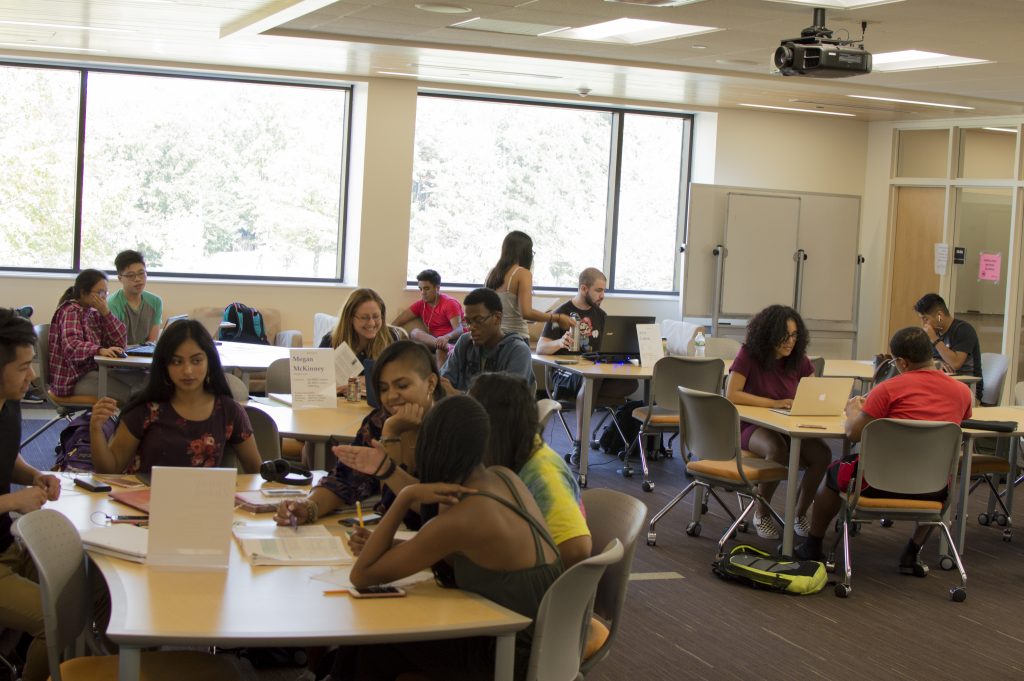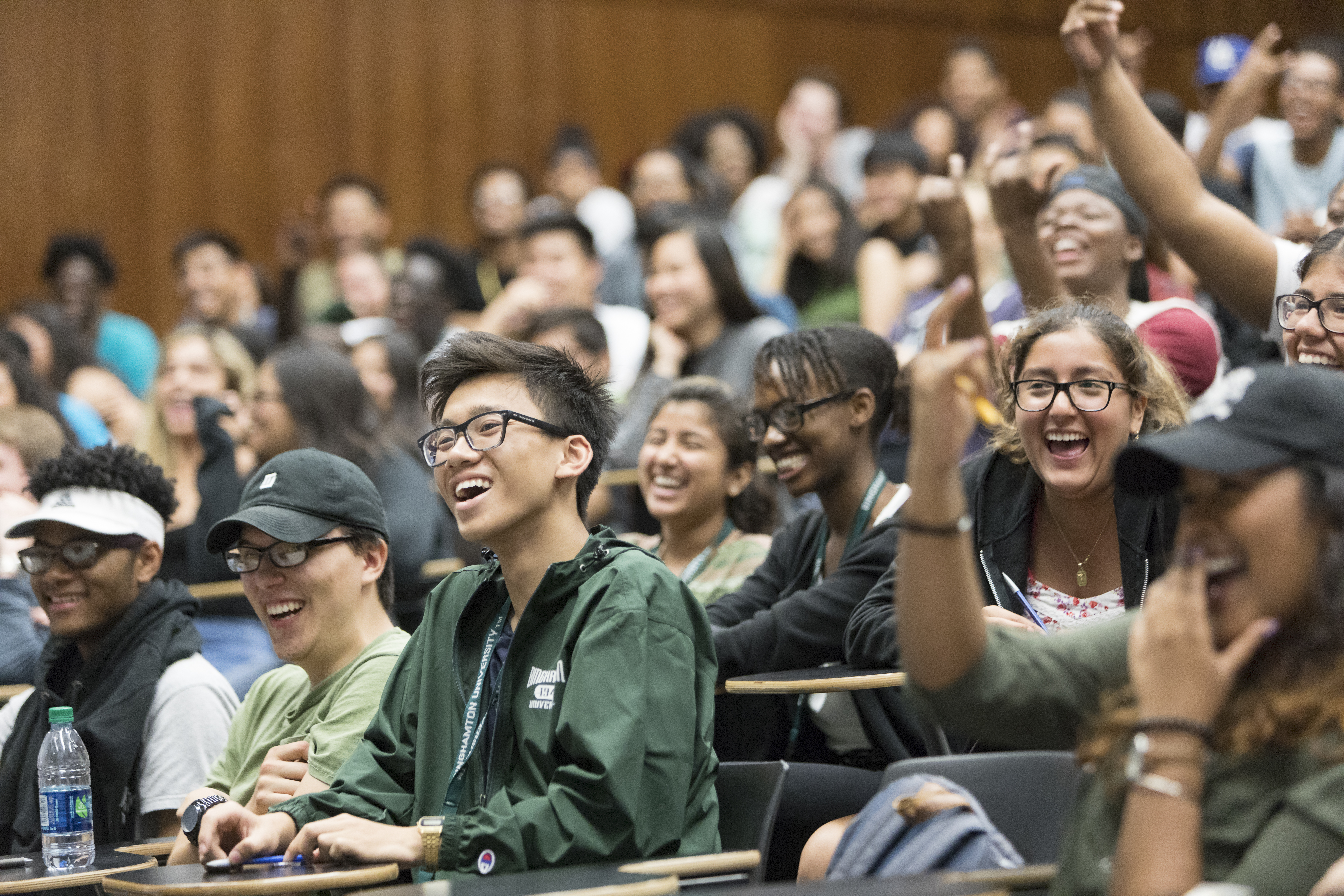
“We’re letting students know that it’s okay to be vulnerable,” Gantt said. “It’s okay to come in and talk about how things are going — good, bad and indifferent.”
First founded in 1968, EOP works to fulfill New York state’s commitment to providing economically disadvantaged students with higher education. The program is run by SUNY and similar programs can be found at private and CUNY schools throughout the state.
The BU program’s graduation rate of 83 percent is the highest among all SUNY institutions and is higher than that of many institutions across the nation. In the spring of 2017, 605 students were enrolled in the program, with 94 percent of students in good academic standing with GPAs of at least 2.0.
This month’s town hall was a community builder and allowed students to become more familiar with the statistics associated with the program, both at BU and statewide. According to Gantt, the program is often an integral part of students’ lives while at BU.
“Many of the students just feel a sense of comfort, knowing that they have a home base in which to go, kind of just to rejuvenate themselves,” Gantt said. “I think it’s important for them to see that others are celebrated and we recognize them for working hard and doing the things that they need to do to be successful.”
Many staff and faculty at the University choose to make themselves available to EOP students as a resource, despite not working directly for the program. Wesley Dyer, the case management graduate assistant in Mountainview College and a first-year graduate student studying social work, said he wants to make himself visible to students who may not see many other faculty of color around campus.
“I think the EOP program does a really good job of helping underrepresented groups come to higher education,” Dyer said. “I’m really the only black male in my program, so I just want to let all the undergraduate students know, from the EOP, that they have someone to speak to whether it’s minor or major.”

This past summer, the EOP welcomed its largest freshman class in history with 179 students. Before attending BU this fall, students spent a month at the University participating in the Binghamton Enrichment Program (BEP), a mandatory program for students admitted to EOP. There, they enrolled in eight credits of preliminary courses meant to bridge the transition from home life to the experience on campus, both academically and socially.
Many students who graduated from BEP identify closely with their class, often referring to their summer program. This is not coincidental, as Gantt said he wants students to feel closely tied to the program.
Ashley Ceballo, an undeclared freshman and member of BEP ‘17, said surrounding herself with others involved in EOP cast aside any worries she had before coming to BU.
“It’s different imagining yourself somewhere and actually being there,” Ceballo said. “The people around me — the counselors, the mentors and even the students, they made me feel more comfortable, like I actually belong here.”
With nearly 700 students now enrolled in the program this fall, Gantt said in addition to growth, he hopes to see an increase in the number of students going on to graduate schools after leaving the University.
“EOP is all about getting students ready for getting a job right out of college; higher secondary education is another goal all to its own,” Gantt said.
Correction: A previous version of this article said the EOP graduation rate was 89 percent. It is 83 percent.


